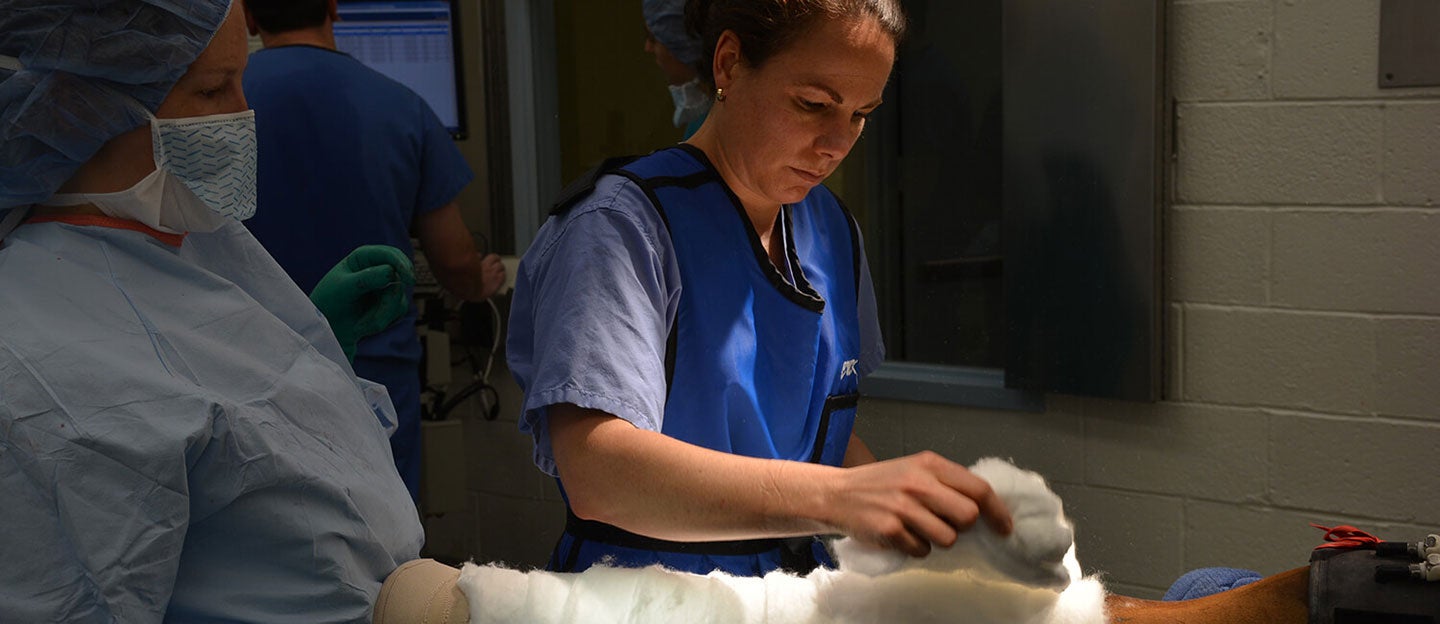About Post-traumatic Osteoarthritis
Post-traumatic Osteoarthritis

Joint injuries are overwhelmingly common in both human and equine athletes. Chondrocytes, the sole cell type in cartilage, are responsible for producing and maintaining the extra-cellular matrix (ECM), which affords remarkable tensile and compressive strength to the joint surface. Once damaged, cartilage has little to no ability to heal itself. Therefore, post-traumatic osteoarthritis (PTOA) commonly develops following joint trauma, whether sustained during an acute injury or accumulated overtime.
Unfortunately, PTOA is a progressive, debilitating disease that currently lacks any effective treatment. Pain and decreased mobility are addressed with systemic non-steroidal anti-inflammatory drugs (NSAIDs), intra-articular corticosteroids, rest and rehabilitation. The end stage therapy for OA joints in humans is total joint replacement, while select joints in the horse can be treated with surgical arthrodesis. Both of these procedures are invasive and expensive interventions.
Our Focus
At the Ortved Laboratory, we are focused on understanding the pathogenesis of PTOA and developing regenerative medicine therapies to improve musculoskeletal healing using the horse as a model for human disease. Specifically, we are interested in gene, signal, and cell-based therapies to improve cartilage repair and prevent osteoarthritis. Dr. Ortved’s clinical work as an equine orthopedic surgeon facilitates translation of this research from bench to clinic floor.
Research Techniques
- Cell culture of equine mesenchymal stem cells
- Molecular biology: PCR and qRT-PCR, flow cytometry, protein analysis
- Microscopy
- Histology
